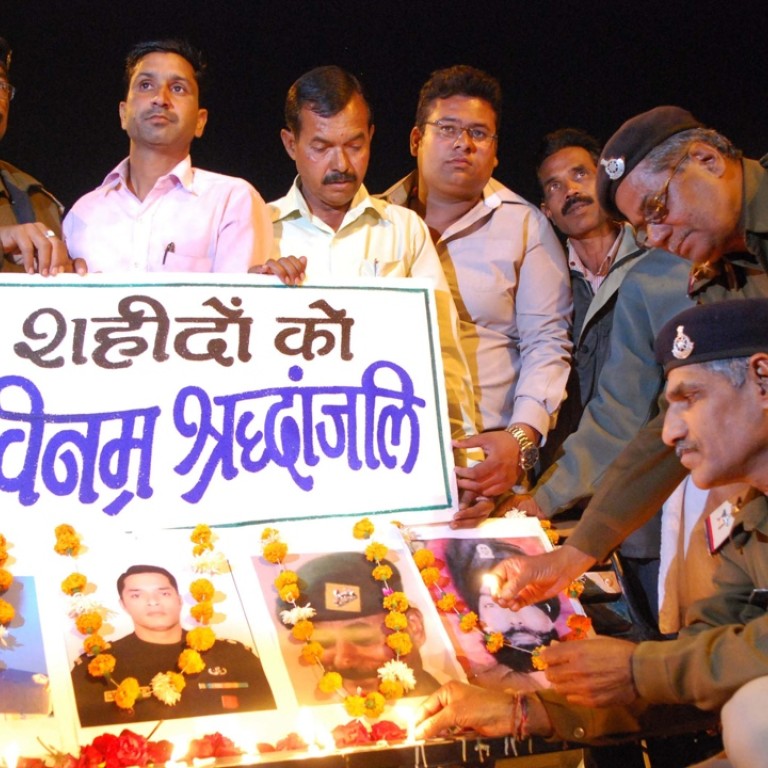
Anatomy of an attack: Missed clues, lax security and wasted time in run-up to raid on Indian air base
The hijacking of an Indian police officer’s car by gunmen disguised in uniform should have set off alarm bells and helped prevent a deadly weekend attack on a military air base, officials and security experts said.

Three days on from an assault that killed seven military personnel and wounded 22, five attackers have also been eliminated, but an operation was still under way to secure the sprawling compound in northwestern Punjab state that lies 25km from the border with Pakistan.
Police Superintendent Salwinder Singh’s call to a colleague in the early hours of Friday morning, after his car was hijacked, was at first treated as a case of armed robbery, the officer who answered the phone said.

The police sources said Singh had just been transferred after a woman constable filed a sexual harassment case against him. Singh, who was interrogated on Monday for six hours by federal investigators, could not be reached for comment.
Home Secretary Rajiv Mehrishi has said the location of the attackers was only pinpointed as Pathankot on Friday afternoon.
That was at least 12 hours after the seizure of Singh’s unmarked vehicle, in which he was travelling with two other men following a visit to a shrine near the border with Pakistan.
“Too much time was wasted,” said A.S. Dulat, a former head of the Research & Analysis Wing, India's main foreign intelligence agency. “How did they infiltrate to where they did? How were they allowed to roam around for 24 hours?”
Civilian and military officials say a security alert was circulated quickly enough to prevent the assailants from damaging fighter jets and helicopters at the base.
Nevertheless, a lack of inter-agency cooperation may have hobbled the security response, with another local police chief calling the air base a “fortress” that senior colleagues cannot enter without a written request.
“It always operated like a self-sufficient township but had no interaction with the city police or local administration,” said Manoj Kumar, Pathankot’s deputy superintendent of police.
Singh’s cook, Madan Gopal, said he was dumped by the roadside with his employer after a long drive during which their eyes were taped shut. The gunmen took fellow passenger Rajesh Verma, a jeweller, with them.
“We both walked for an hour to reach a nearby police outpost,” Gopal, 61, said. “Singh got in touch with his superiors but they told him to go home and come to the office the next day.”
Verma survived and testified to police that the attackers had used his phone, possibly to call their handlers, according to the Indian Express.
One local report said the assailants dumped Singh’s car 500 metres from the base. How they got into the compound is still unclear. Once inside, they burst into a guards’ mess and fired indiscriminately.
One guard tackled and killed an attacker, only to die from another gunman’s bullet, said Air Commodore J.S. Dhamoon, commander of the base.
Three more suspected militants were killed later on Saturday after running through the compound, firing into windows.
The guard who died was a member of India’s Defence Security Corps (DSC), a unit made up of veterans who guard military facilities. Five of the seven military personnel to die served in the DSC, some of them in their fifties.
Some observers said the DSC should not guard high-value military assets.
“They were not up to speed,” said Nitin Gokhale, a security analyst who edits a defence portal.
Yet the greater weakness at the base, with a 24km perimeter and a 3-metre wall topped by barbed wire, may have been a lack of adequate surveillance.
“You can have a wall, but a wall can be scaled and, probably, a surveillance system such as CCTV was lacking,” said Govind Sisodia, a former senior commander of India’s National Security Guard counter-terrorism unit.
There have been conflicting reports of how many attackers were involved in the raid, since claimed by the United Jihad Council, an alliance of more than a dozen pro-Pakistan militant groups based in Pakistan-run Kashmir.
India and Pakistan have fought two wars since independence in 1947 over Kashmir, both claiming the region in full but ruling it in part. Tight security along the frontier there has pushed militant attacks south to Punjab.

